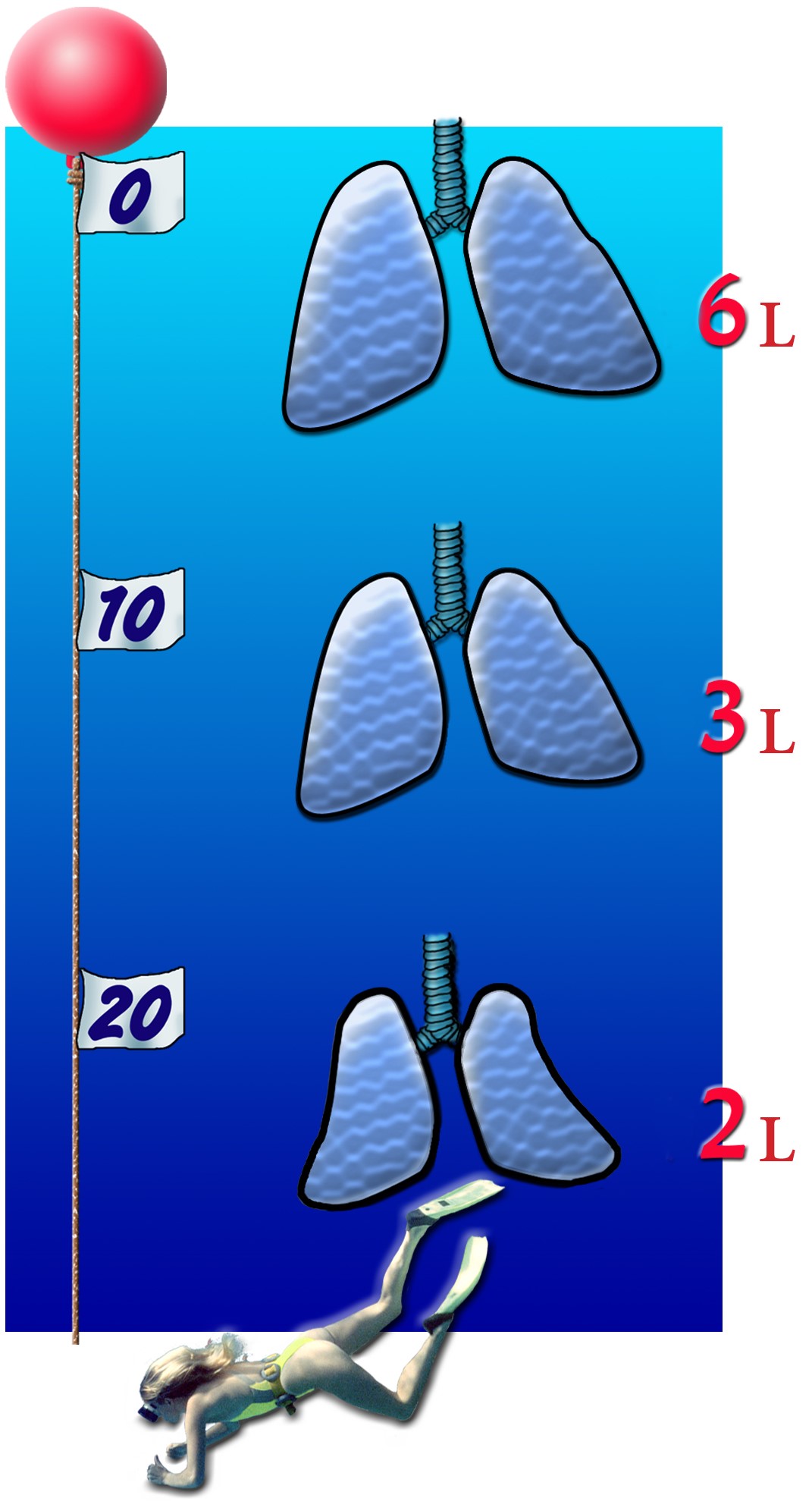When free diving, the diver fills his lungs with air which he inhales on the surface, while underwater he stops breathing. Naturally, the length of the dive underwater is limited and cannot surpass the length of time the diver can hold his breath. During diving, the free diver's lungs are affected by the rise of the environmental pressure. When going deeper, the air pressure in his lungs equalizes to the environmental pressure, which is why the chest shrinks. The deeper the diver goes, then, the more his lungs are compressed and the air pressure within them grows. When ascending, the diver's lungs widen and return to their normal size. At the same time, the air pressure within them grows smaller. On top of this, the pressure directly affects the middle ear. Because of this, the diver must equalize the pressure in his ears by pumping. Free diving is limited within the aspects of depth and duration of time the diver can remain underwater, unless we are talking about a professional diver, with lots of training and much experience.
When free diving, the pressure in the diver's lungs is equalized by his chest shrinking while the pressure in his ears must be equalized by pumping.

It is not possible to copy content from this course.
If the course is interesting you can share it with your friends
In order to take the following knowledge exem,
you must review all the topics of this chapter
In order to move on to the next chapter
You must pass the previous chapter exam.
In order to start the final exam
You must complete the entire course
To move on to the next chapter
You are required to pass the exam for this chapter.
This content can be viewed
Only by purchasing the full course
purchase this course